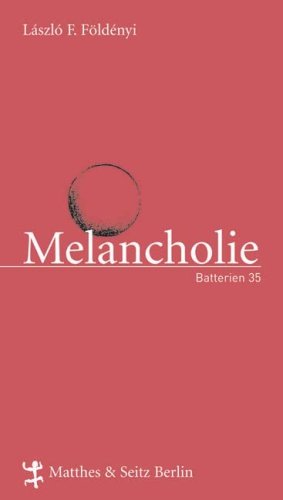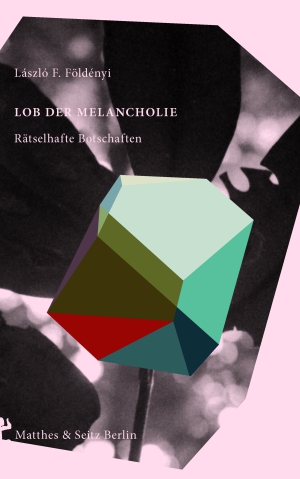One of today‘s most brilliant essayists turns to melancholy with his characteristic wealth of literary, aesthetic and historical insights. His book, part history of the concept and part analysis of the melancholy disposition, delves far into the past to examine the ambiguities of melancholy. On the way Földényi rediscovers melancholy as a source of energy and creativity, that would be able to keep us moving in the midst of our hardened present to set.
Awards
Leipzig Book Prize for European Understanding 2020Sample translation
Hungarian original available
Complete English translation available
László F. Földényi, born in 1952 in Debrecen, is a Hungarian art theorist, literature specialist and essayist. He holds a chair for art theory at the Academy for Theater and Film in Budapest. He has edited the complete works of Heinrich von Kleist in Hungarian. Since 2009 he is a member of the German academy for language and poetry.
By the same author(s)
"A magnificent book." – Neue Zürcher Zeitung
"László F. Földényi has written a study of melancholy that is fundamentally different from others. His book touches the reader deeply. He recognizes his own melancholy and encounters a completely different view of it, freed from all orthodoxy. Földényi insists that illness, melancholy, and death are insoluble, untreatable parts of human existence." – Süddeutsche Zeitung











